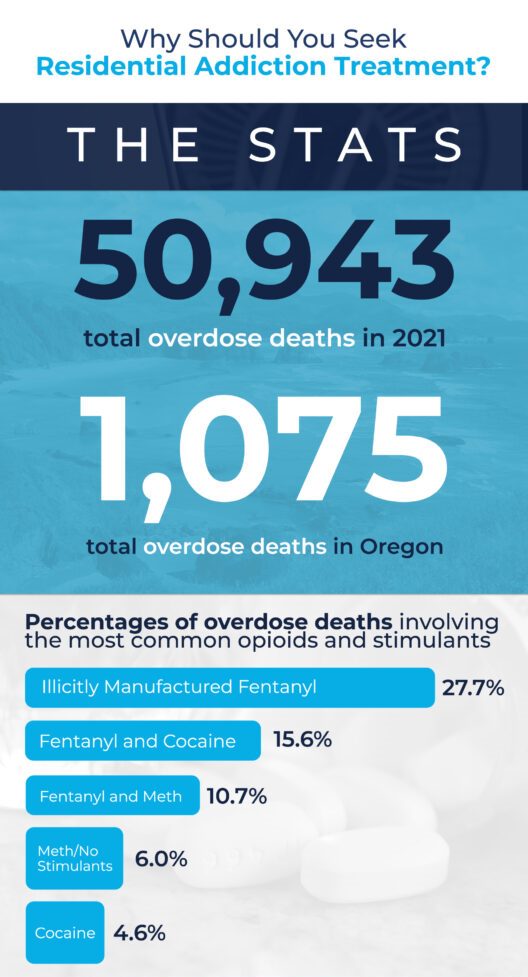The overdose crisis in America has reached staggering proportions as depicted in this image, with 50,943 total overdose deaths recorded in 2021 alone. Closer to home, Oregon witnessed a heartbreaking 1,075 lives lost to this devastating epidemic. These chilling statistics serve as a strong reminder of the urgent need for comprehensive addiction treatment services, particularly residential care programs.
At the core of this crisis lies the prevalence of illicitly manufactured fentanyl, a synthetic opioid that has contributed to a staggering 27.7% of overdose deaths. Compounding the issue further are the deadly combinations of fentanyl with stimulants like cocaine (15.6%) and methamphetamine (10.7%), creating a perfect storm of risk for those grappling with substance use disorders.
The staggering reality is that 23 million Americans are in dire need of treatment for substance use disorders, yet a mere 10% of this population receives the vital addiction treatment they so desperately require. This glaring gap in access to care underscores the pressing demand for robust and comprehensive residential rehab addiction treatment programs.
Residential treatment facilities offer a structured and immersive environment, providing 24/7 support and assistance to individuals on their journey to recovery. These programs foster a safe and supportive community, where clients can establish new routines and healthy habits within a personalized and stable daily schedule. The holistic approach of residential treatment addresses not only the physical aspects of addiction but also the emotional, psychological, and social facets that are linked to the recovery process.
The benefits of residential addiction treatment are compelling. Those who have undergone these programs have experienced a remarkable 50-70% decrease in drug use, a testament to the transformative power of comprehensive care.
Within the confines of residential treatment facilities, clients have access to a multidisciplinary team of professionals who provide personalized counseling, family therapy, and holistic treatment approaches. This multifaceted approach acknowledges the complex nature of addiction and the unique needs of each individual, providing an environment conducive to healing and growth.
As the overdose crisis continues to ravage communities across the nation, it is imperative that we prioritize access to residential addiction treatment services.
(Click on the Image For Full View)


